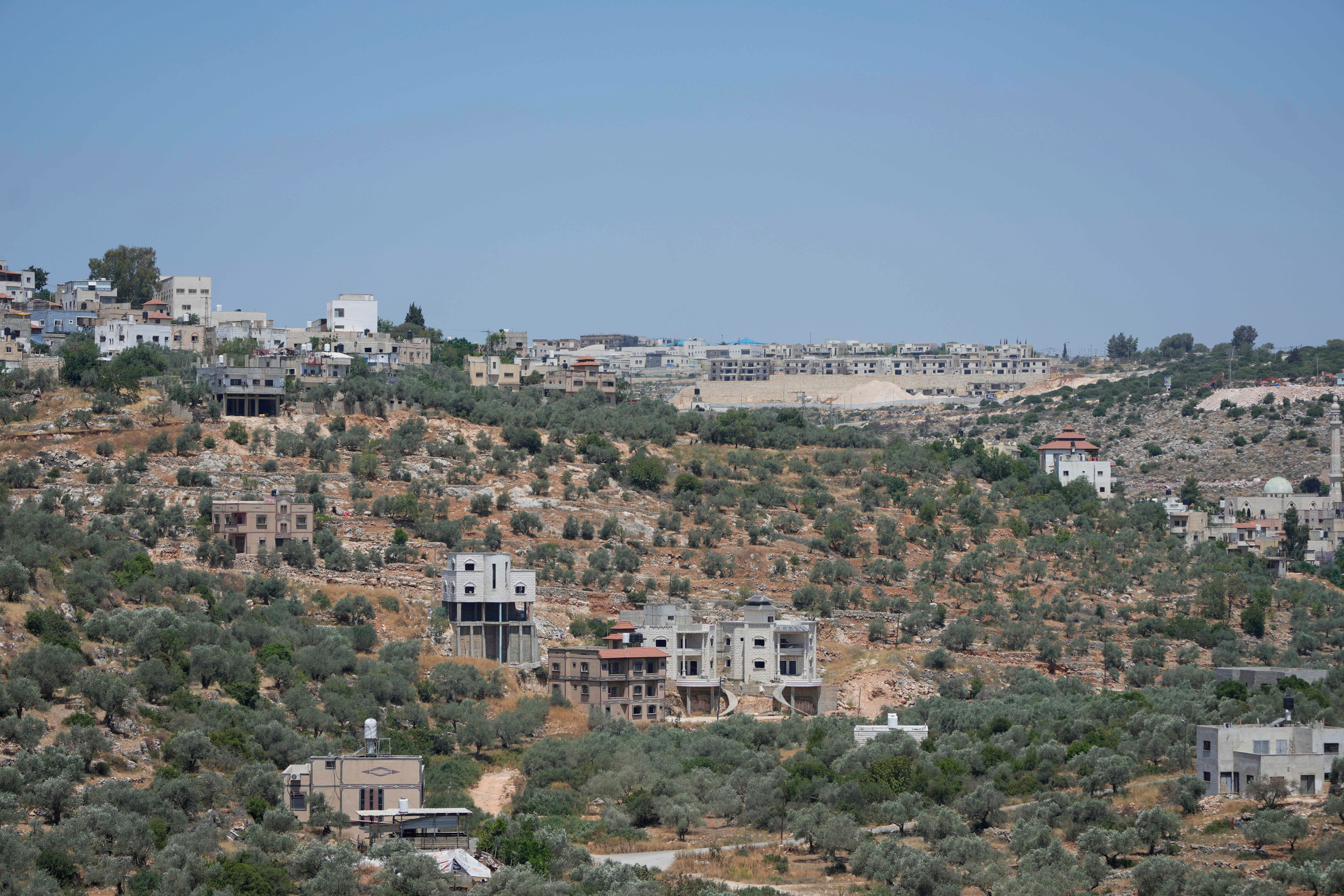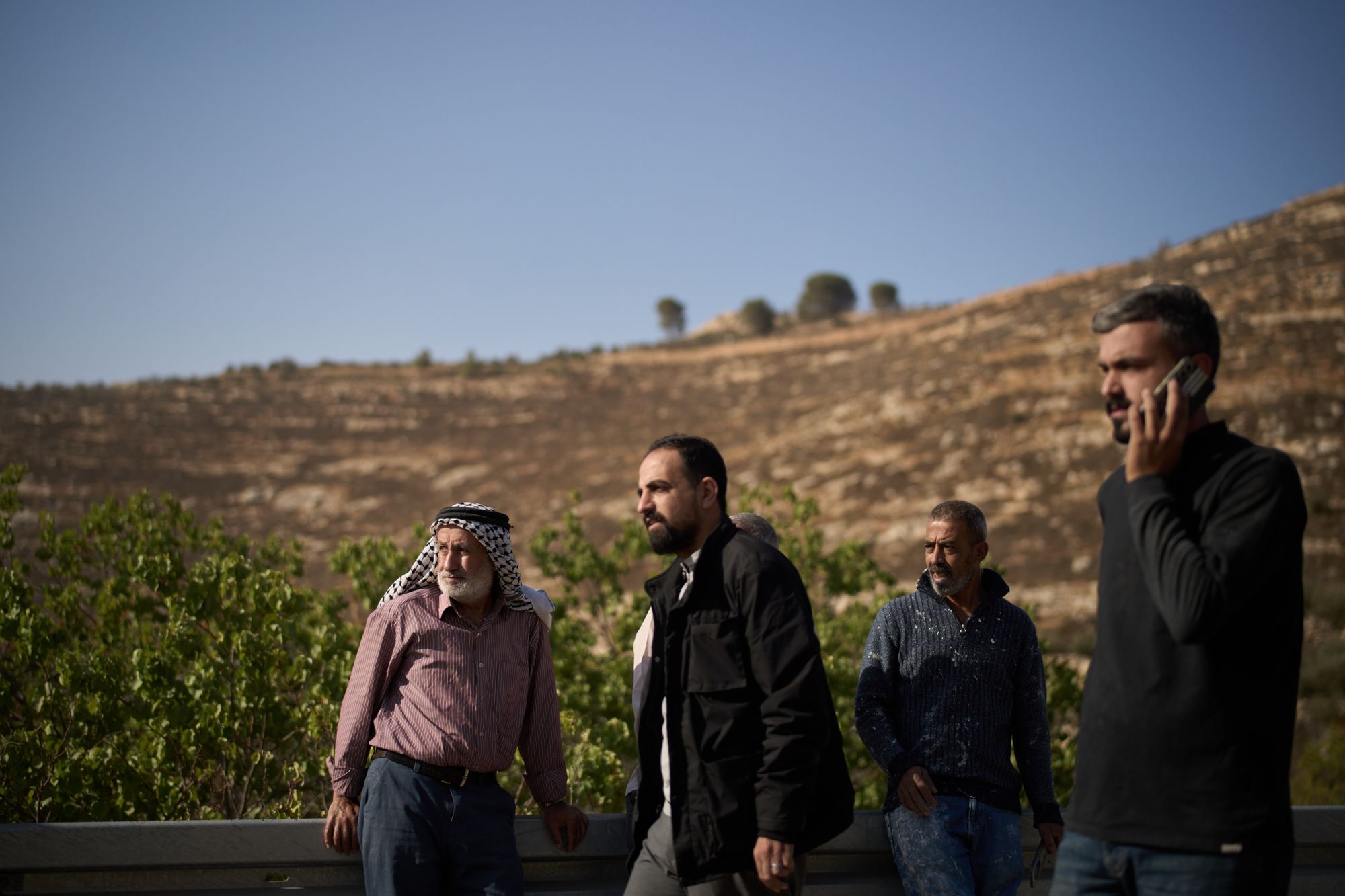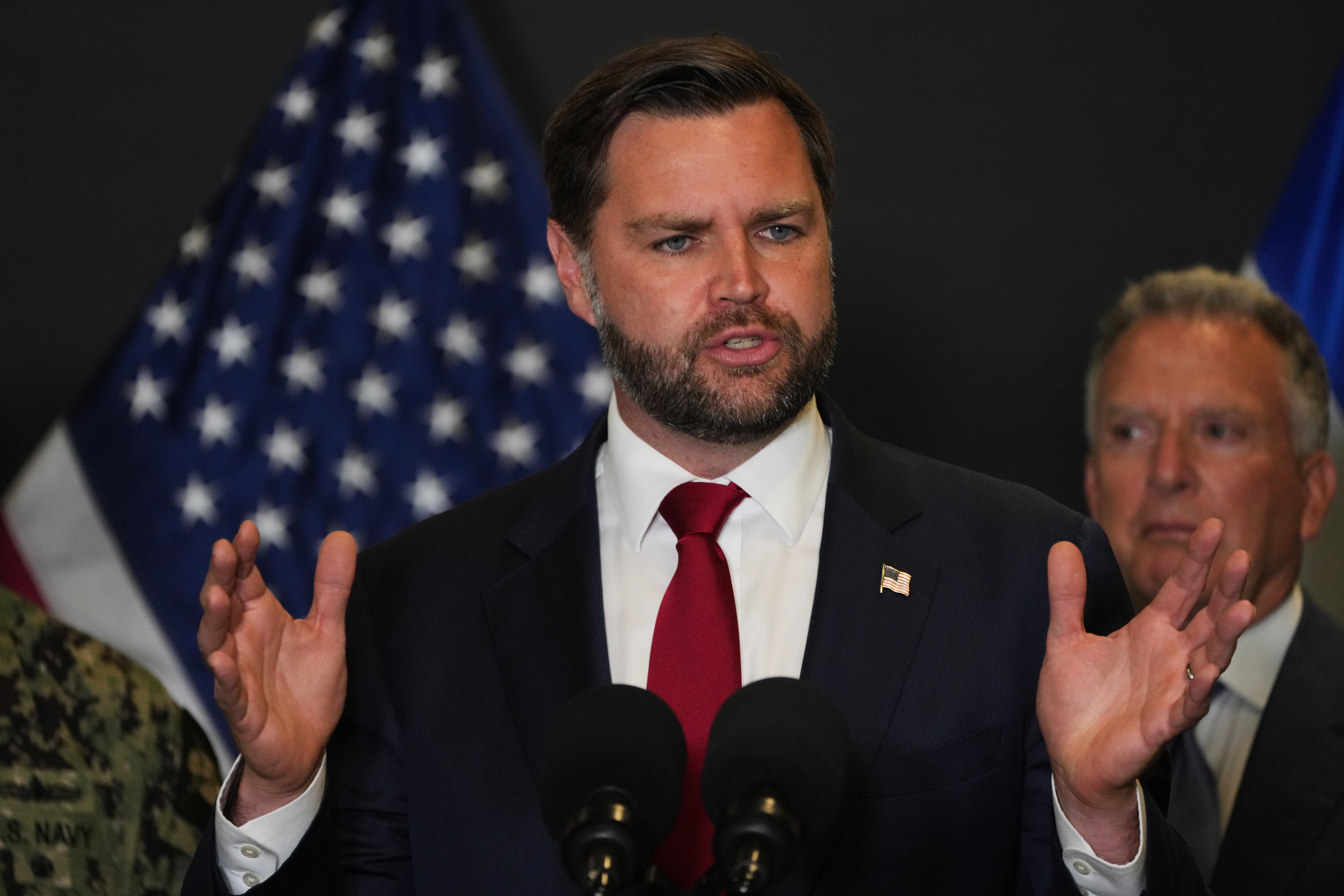Israel’s parliament has given preliminary approval to a bill to enforce full Israeli sovereignty over the West Bank, effectively formalising its annexation.
The policy, opposed by Israeli Prime Minister Benjamin Netanyahu, was passed by a vote of 25 to 24, out of 120 lawmakers. Many members of the Knesset either abstained or declined to turn up for the vote.
US Vice President JD Vance - who has been in Israel this week to try and progress Donald Trump’s fragile ceasefire - criticised the move on Thursday.
Branding it a “stupid political stunt”, he called the move an “insult” that went against the Trump administration policies.

What happens to the bill now?
Wednesday’s vote was the first of four needed pass the law that will now proceed to the Knesset Foreign Affairs and Defence Committee for further deliberations. A second bill proposing the annexation of the Maale Adumim settlement passed by 31-9.
A Knesset statement said the annexation bill was approved in a preliminary reading “to apply the sovereignty of the State of Israel to the territories of Judea and Samaria (West Bank)”, mirroring the use of biblical terms used in the bill. It later insisted it was only a “preliminary reading” and would not go forward without the support of the Israeli government.
Netanyahu's office said in a statement that the “vote on annexation was a deliberate political provocation by the opposition to sow discord”.
Israeli politicians, including far-right Security Minister Itamar Ben-Gvir, previously threatened to annex the West Bank in response to Western states promising to recognise a Palestinian State.
The West Bank would form a significant portion of that state and annexation would substantially block this. Netanyahu backtracked on this after US President Donald Trump objected.
The illegality of existing settlements

Annexation, defined as the possession of land by force and without permission, is generally illegal under international law.
In July 2024, the International Court of Justice issued a landmark advisory opinion on the legal consequences arising from the policies and practices of Israel in the Occupied Palestinian Territories.
“The ICJ confirmed that Israel's policies and practices in the West Bank already constitute de facto annexation,” says Pete Weatherby KC, a barrister specialising in international criminal and humanitarian law and international human rights law at Garden Court North Chambers.
“It affirmed that Israel's continuing presence in the OPT is illegal and an ongoing wrongful act, depriving the Palestinian people of their right to self determination.”
It further found that Israel's policies and practices towards Palestinians in the West Bank constitute a breach of Article 3 of the Convention on the Elimination of Racial Discrimination, which relates to two particularly severe forms of racial discrimination: segregation and apartheid, he told The Independent.
In September 2024, the UN General Assembly adopted a resolution endorsing this opinion.
“Israel is under a clear obligation to immediately cease all settlement activities in the West Bank, and bring its ongoing occupation to an end,” Mr Weatherby said. “Instead, this latest bill in the Knesset reflects its intentions to formally entrench these ongoing egregious violations of international law in the West Bank.”
There are more than 250 settlements spread across the West Bank and East Jerusalem, where between 600,000 and 750,000 settlers live.
Israel argues the territories it captured in the 1967 war are not occupied in legal terms because they are on disputed lands, despite disagreement from the UN and international community, including the UK.
International backlash

The Israeli parliament's vote has stirred widespread condemnation, with over a dozen countries — including Egypt, Qatar and Saudi Arabia — rebuking the vote it in a joint statement that called all Israeli settlements in the WestBank a violation of international law.
Speaking on the Tarmac of Tel Aviv's Ben Gurion airport before departing Israel, Vance said that if the Knesset's vote was a “political stunt, then it is a very stupid political stunt.”
“I personally take some insult to it,” Vance added. “The policy of the Trump administration is that the WestBank will not be annexed by Israel.”
US Secretary of State Marco Rubio also made clear that annexation is “not something we’d be supportive of”. “We think it’s even threatening to the peace deal,” he added.
The move has also been condemned by Jordan, the Palestinian Foreign Ministry and Hamas.
UK foreign minister Yvette Cooper said about the prospect of annexation last month: “We have been clear, and I have been clear with the Israeli foreign minister, we have been clear with the Israeli government that they must not do that. We have been clear that this decision we have taken is about the best way to protect security for Israel as well as the security of Palestinians.”
The reality on the ground
Echoing the ICJ’s judgment, Palestinians say the expansion of settlements means that a law being passed will make little material difference to the dire situation on the ground.
“It is about formalisation of what's going on on the ground,” says West Bank activist Issa Amro, who appeared in Louis Theroux’s acclaimed BBC documentary, The Settlers.
Peace Now, an Israeli organisation citing settlement expansion as the “biggest obstacle to peace”, called 2024 “The Year of Annexation and Expulsion” in a report published in February 2025.
It outlined that 24, 258 dunams (one dunam = 1,000 sq m) of land were declared as “state land” for Israel. This represents more than half of all land declared as state land since the Oslo Accords over thirty years ago.
“House demolitions are at an all-time high. There is no accountability. Palestinians live under martial law, while Israelis live under civilian law. They revoked authority from the Ibrahimi mosque and placed it under settler control. Annexation has happened, this is just formalising it.”
Trump won’t send troops to San Francisco after ‘friends’ asked him not to: Live
Gaza vet ‘killed by Israeli troops’ while returning home after ceasefire
Trump pardons Binance founder Changpeng Zhao, high-profile cryptocurrency figure
Pump prices could rise after US, EU hit Russian oil companies with new sanctions and oil spikes
Meet one of Gaza’s few prosthetic experts helping the thousands who have lost limbs
Teenage girl awarded scholarship at British boarding school trapped in Gaza







